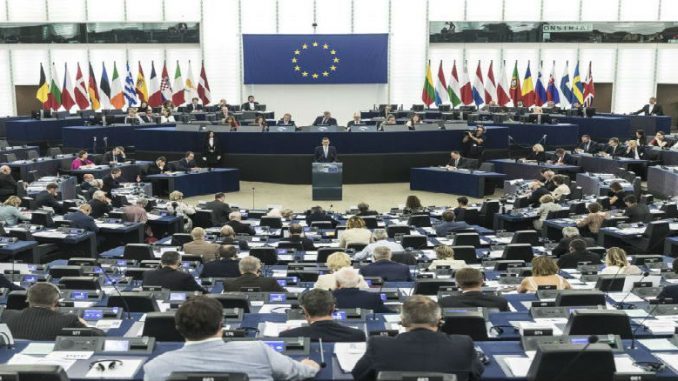
The EU’s lawmaking body has condemned Egyptian authorities for human rights abuses and is urging them to lift restrictions on free speech and assembly, halt mass trials and stop sentencing minors to death, and release political prisoners.
In a resolution passed by a vote, the European Parliament says Cairo enforces continuous restrictions on fundamental democratic rights. It implored authorities to also “drop all existing baseless criminal investigations into the work of non-governmental organizations”.
The resolution urged the release of several detained human rights advocates by name, saying that “the long-term prosperity of Egypt and its people goes hand in hand with the protection of universal human rights.”
The resolution also mentioned that the Egyptian Government has intensified its crackdown against civil society organizations, human rights defenders, peaceful activists, lawyers, bloggers, journalists, labor rights defenders, and trade unionists, including by arresting and disappearing several of them and increasingly using counter-terrorism and state of emergency laws.
It stated, “Since late October 2018, at least 40 human rights workers, lawyers, and political activists have been arrested, some of them forcibly disappeared.”
It has also reiterated its continued outrage at the torture and brutal murder of Italian researcher Giulio Regeni and stressed that it will continue to press the EU authorities to engage with their Egyptian counterparts until the perpetrators are held accountable.
Giulio Regeni, the PhD. student, who was doing postgraduate research into Egyptian labor unions, disappeared on the fifth anniversary of the January Revolution. The Cambridge University student’s body was found brutally tortured in a roadside ditch on the outskirts of the Egyptian capital, on February 3, 2016. His mother said that she could only recognize him by his nose.
Torture found on Regeni’s body showed the signs of Egypt’s security forces which are known for using violence against detainees to gain information and confessions.
On 8 February 2018, the European Parliament issued a resolution on executions in Egypt, expressing concerns that “strict procedures are in place within the country’s legal system in cases where the death penalty is applicable.”
The European Parliament highlighted what it called a “significant rise in the number of people sentenced to death in Egypt since 2014,” referring that at least 2,116 individuals have reportedly been sentenced to death in Egypt, including 186 persons in 2017; whereas 846 of these sentences were reportedly handed down without the defendant even appearing in court.”
It added, “Whereas no death sentences were approved under former Presidents Mohamed Morsi and Adly Mansour; whereas at least 81 executions have been carried out since 1 January 2014.”
It also added that the overall human rights situation in Egypt remains “deeply problematic”; saying that “the crackdown on terrorism has also been used as justification by the Egyptian authorities to conduct a large-scale and relentless campaign of arbitrary detention, harassment, intimidation, enforced disappearance and censorship against government critics, including journalists, human rights defenders, lawyers, and political opponents; whereas perpetrators enjoy a climate of near-total impunity.”
The European Union has occasionally condemned Egypt vocally under general-turned-Abdel-Fattah al-Sisi’s rule, although it rarely impacts trade or weapons sales.
The Egyptian government launched a massive crackdown against human rights since Abdel Fattah al-Sisi reached power through a military coup against Egypt’s first democratically elected president Mohamed Morsi in 2013.



